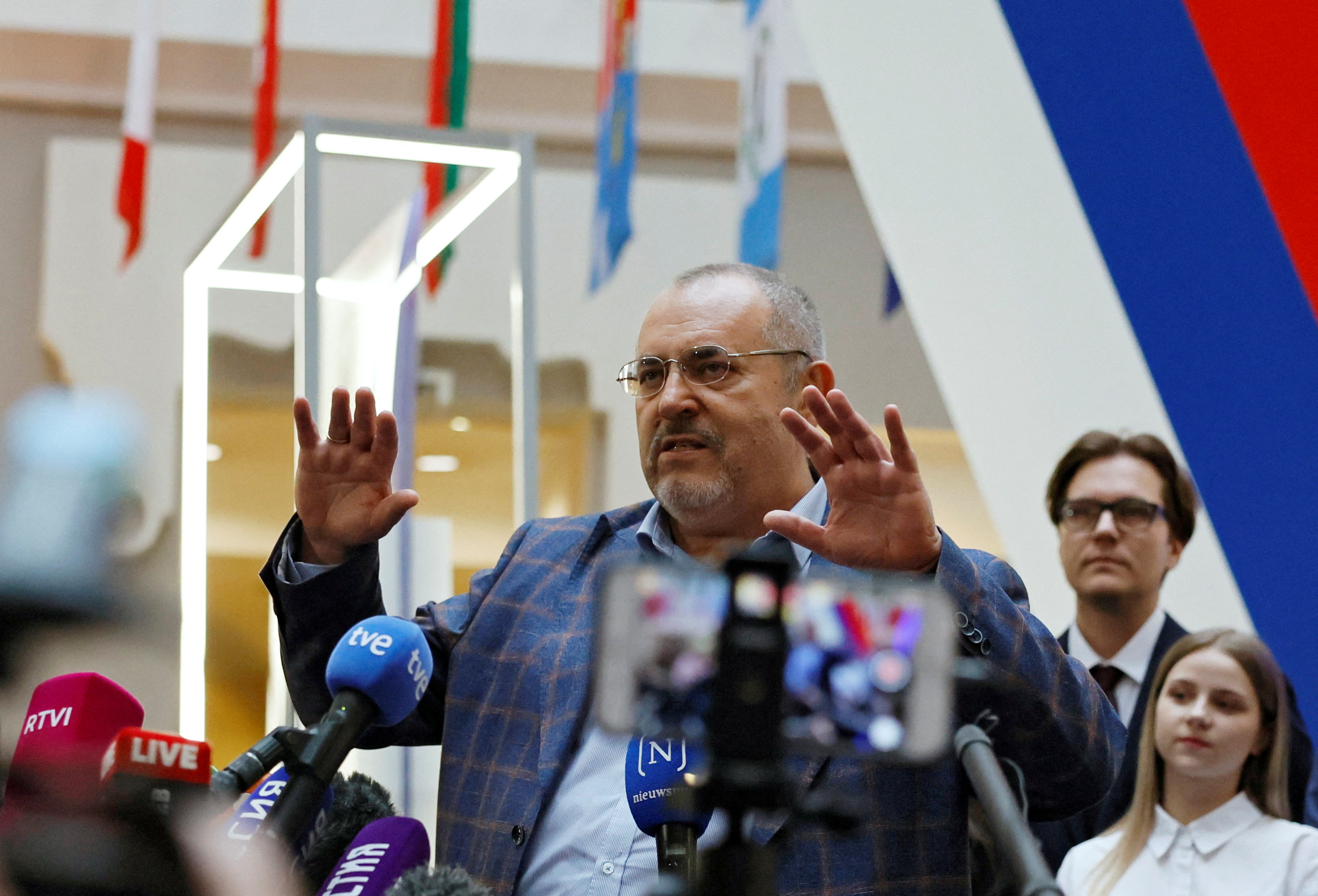
Boris Nadezhdin, a prominent critic of the Kremlin, has submitted the documents needed to register as a candidate for Russia’s presidential elections in March.
The 60-year-old local councillor, who has promised to end Russia’s war in Ukraine, said on Wednesday that he had collected more than 100,000 signatures of support across 40 regions and submitted them and other documents to the Central Election Commission (CEC), which is technically enough to challenge President Vladimir Putin.
Election officials will next check the authenticity of the signatures submitted by Nadezhdin and other potential candidates and announce next month who will join Putin on the ballot for the March 15-17 elections.
The electoral body has in the past uncovered what it claimed were irregularities in signatures or documents collected by some candidates and disqualified them.
Putin, who will be running as an independent rather than as the candidate of the ruling United Russia party, needs 300,000 signatures but has already collected more than 3.5 million, according to his supporters.
In December, the 71-year-old incumbent announced his decision to seek to extend his rule. He is almost certain to win a fifth term as president, extending his 24-year leadership of Russia, including eight years as prime minister.
Nadezhdin, who has criticised the invasion of Ukraine in February 2022 as a “fatal mistake”, was born in Soviet-ruled Uzbekistan to a Jewish mother who was a music teacher and a physicist father.
He has spent the last 30 years in Russian politics, working as a councillor in the town of Dolgoprudny outside Moscow. He will be standing as a candidate for the Civic Initiative party.
He shot to fame with his calls to end the war, bringing out crowds of Russians across the country eager to add their signatures to his bid to get on the ballot.
After a series of heating outages across Russia during an unusually cold winter, Nadezhdin said earlier this month that the country would be able to afford to spend more on its citizens if it was not pouring so much money into the military.
He described the war as “catastrophic” in an interview with the AFP news agency, and said he wanted to “free political prisoners” in Russia.
“This is my pride,” he said of the signatures collected, as he thanked his supporters in a statement posted on his official Telegram account.
“The work of thousands of people going without sleep over many days. The result of the queues you stood in, in the cold, is in the boxes. It will be very difficult for the CEC and the authorities to say: ‘I didn’t notice the elephant in the room’!”
He also posted a video from the CEC’s headquarters showing papers containing the signatures piled up on tables ready to be checked by officials, describing which region each stack had come from.
Nadezhdin’s bid raises the question of just how far the Kremlin would let him go, at a time when speaking out against the conflict is politically fraught, often landing critics in prison.
Putin has not allowed real electoral opposition in his 24-year rule, with rivals such as opposition leader Alexei Navalny behind bars.
Navalny’s wife Yuliya signed her name in support of Nadezhdin in a symbolic photo posted by the jailed critic’s ally.







